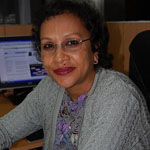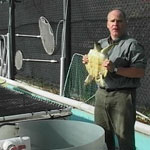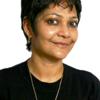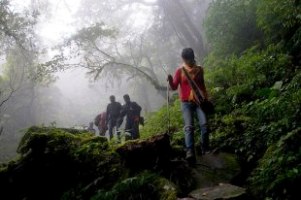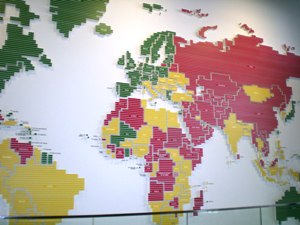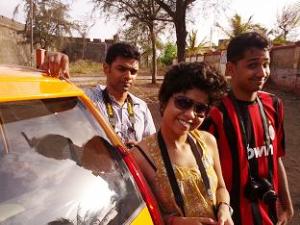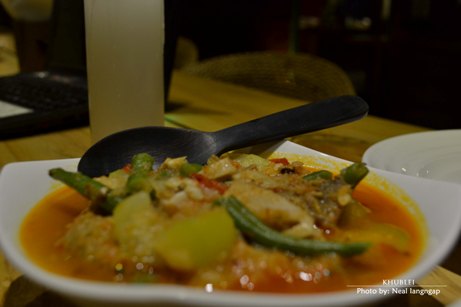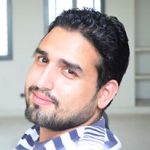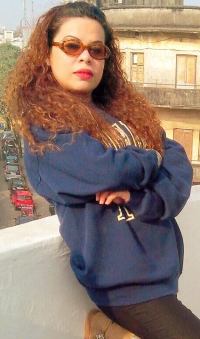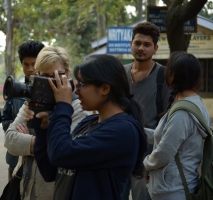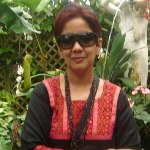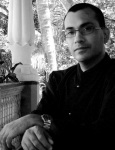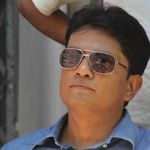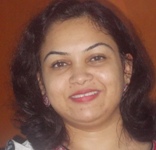'Freedom as a Sacred Trust'
With some startling revelations such as learning British history more than Indian history at school, Patricia Mukhim from Meghalaya outlines why Independence Day is precious to her
What Independence Day means to me - the caption makes me reflect on whether Independence Day has any special connotation to me as an individual and to people of the Northeast region as a whole, having been born after 1947 when whatever narratives one got was from parents and grandparents.
The British advent into the region and to Shillong which they called their summer capital saw them introducing a 'civilising mission' in the form of the Christian missionaries who set up schools and health care centres. This proselytising mission perhaps took away the barb of a foreign conquest.
The British rule in the region was not as oppressive as it was in the rest of India. We did not experience Jallianwala Bagh or similar episodes that brought out the extreme ruthlessness and cruelty of the British. But the Jaintia freedom fighter Kiang Nangbah who opposed the house tax and income tax imposed by the British in the Jaintia kingdom in 1860 and put up one of the bravest fights against the conquerors was hanged in broad daylight at the market square in 1862.
He was made an example of what resisting British authority would mean. Other martyrs and heroes in different parts of the North East also stood up to British imperialism. But the region was divided. It was never one in the first place. And the British are adept at divide and rule stratagems. They were able to subjugate the tribes and plainsmen alike.
It is a travesty of history to say that the tribes of this region who experienced the benevolence of the missionaries nurture no ill-will against the British rulers. Or that they equated the social welfare activities of the missionaries to that of the rulers. Perhaps it was difficult for the simple tribes at the time to distinguish between conquest and good administration. Many thrived under the British system of education and even imbibed some of their cultural traits. Conversion was quick and painless.
Except for a good percentage of Khasis - 40 per cent who still retain their indigenous faith, the Nagas and Lushais (now Mizos) are nearly 100 per cent Christian. Large sections of the Karbis, Dimasas and Bodos still retain their indigenous practices. It was the North East Frontier Agency (NEFA) now Arunachal Pradesh that did not experience this "civilising mission" of the British.
I use the words `civilising mission' in quotes because I believe that we were people who had our own distinct cultures and value systems. Above all, we had well developed governance structures and dispute resolving mechanisms. They may not have been advanced, but they suited our needs.
The British education system, courtesy Lord Macaulay was intrinsically part of us. As kids we learnt British History more than Indian history. They say history is always written by victors. Although the British left India in 1947, their footprints remained long after they left our hills. I plead guilty to not knowing my own history and the sacrifices of patriots like Tirot Sing, the Khasi chieftain who defied the British and Kiang Nangbah who became a martyr to help retain the freedom of his people. I consider it the saddest part of my growing up years. Hence my generation was uncritical of the British rule.
We even believed we would have been better off under the British. So naïve was our thinking. But that is what Lord Macaulay's well designed education system did to our psyche.
When I took up History Honours as my subject, I finally learnt about the great freedom struggle -- about the first war of Indian Independence in 1857 and subsequent resistance movements, about Gandhi and Netaji Subhas Bose and their different approaches to the idea of a free India, about Jhansi ki Rani and about the valiant warriors who defended this country with their lives. Only then did patriotism as a germ get sown in my brain. Slowly it took shape in my heart and became part of emotions reserved for the motherland.
As a child, Independence Day meant listening to the radio and hearing Prime Minister Jawaharlal Nehru addressing the nation. Inmates of a hostel close by would screen a free movie - usually a Manoj Kumar-patriotic kind with songs like 'Mera desh ke dharti, sona oogle, oogle hire moti...'
That might have been my first step towards understanding Independence Day. Bollywood guided me to what "country," "flag" and sacrifice meant. We understood freedom from stories of what 'freedom is not' in Soviet Russia and China. We were too young to understand freedom from acting it out.
Fortunately, my father pushed me to think beyond the mundane. He loaded our small home with books from Standard Literature which included a whole range from philosophy of the world's great thinkers. I read Plato and Aristotle early in life without understanding their deeper nuances.
My father constantly prodded me to "have presence of mind" whatever that meant. Only when I took up the pen to air my views did I realise how precious freedom was. It gave me the liberty to rave and rant at powers, to point out their acts of omission and commission, to become activist and take to the streets if one disagreed with a government policy. Except on one occasion when I got arrested with others for opposing the Government's online lottery, I was free to do anything which did not hurt other fellow human beings, if I was on the right side of the law.
Then came the gloomy days of insurgency in Meghalaya. Discontent had been brewing for a while but became virulent and bloody from 1996. Initially we were all in shock. We heard of insurgent movements and of people being shot at random in Nagaland, Manipur and Assam. But how could it happen in Meghalaya? The Hynniewtrep National Liberation Council (HNLC) became a formidable force. They extorted for the 'cause' and killed people who did not pay up. When we questioned their cause; their response was - we are fighting the biggest coloniser since the British - the Indian State.
They did not explain much, but called all politicians the poodles of New Delhi. They boycotted Independence Day and Republic Day celebrations and imposed it on all of us. At first, we were too terrorised to do anything.
In 1998, my friends and I said enough was enough. We started a movement called, Shillong We Care, to provide a platform to people who were too scared to speak and who were being extorted regularly for the outfit to fund its bloody activities. We violated the I-day and R-day boycott calls. A small band of us would take to the streets and march to the Polo Ground - the venue of official functions.
We were threatened. But we argued that we were not going to leave behind a legacy of fear, doom and gloom for our children and grandchildren. Fortunately, in 2001 the government decided to take on the HNLC with full force. FIRs were filed against those who paid money to the outfit. This gave them the alibi not to pay anymore. Today, HNLC is a spent force and although bandhs are called routinely, many come out and enjoy the day. If people spend it at home, it is because they are lazy to step out.
It is sad that educational institutions and most government offices do not even have a flag hoisting ceremony on Independence Day. They have made it a ritual to observe it a day ahead. But are we not celebrating Pakistan's I-Day? To me, freedom is precious. I realised it when it was curbed by a bunch of gun-toting outfits hiding somewhere in Bangladesh and dictating terms to us over email.
I tell my children and students to nurture this hard won freedom. We have to continually struggle to keep "Freedom" as a sacred trust. That's why Independence Day has special meaning for me.
August 14 means Independence, not freedom
What August 14 means to a Pakistani citizen. A minority citizen at that. Read this compelling piece by senior journalist Shehar Bano Khan ....Read more

